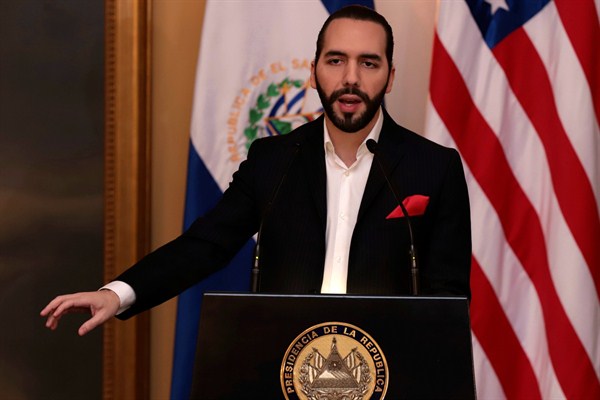One of the most intriguing leaders to come to power in recent months is the 37-year-old, pony-tailed former ad executive who took office as president of El Salvador 100 days ago. Nayib Bukele’s election tore up the entrenched divisions that have dominated El Salvador since the end of its devastating, Cold War-era civil war. Two main political parties, acting as heirs to the conflict’s combatants, had taken their fight from the battlefield to the political arena. Bukele’s victory smashed that dynamic, but it was unclear where he stood precisely, and where his policies would lead the country.
On outline is emerging as the new president’s political persona takes shape. To say Salvadorans are happy with what they’ve seen would be putting it mildly. Polls put Bukele’s approval ratings at a jaw-dropping 90 percent, the highest of any president in El Salvador in 15 years. It’s early days yet, and the high approval ratings could turn into a high expectations trap. After continuous disappointments with previous governments, including former presidents who face serious corruption charges, voters are counting on Bukele to deliver on his promises to tackle the countries’ three crushing problems: corruption, violence and poverty.
When he won the presidential election back in February, Bukele was something of an enigma. In a country where the distinction between left and right had been starkly clear, his background was uncharacteristically ambiguous. He was a member of the leftist Farabundo Marti National Liberation Front, or FMLN, the political party that formed out of the disbanded guerrilla army following the 1992 peace agreement. He served as mayor of the capital, San Salvador, but fell out with the FMLN because of his persistent criticism of the party, which ultimately expelled him.

